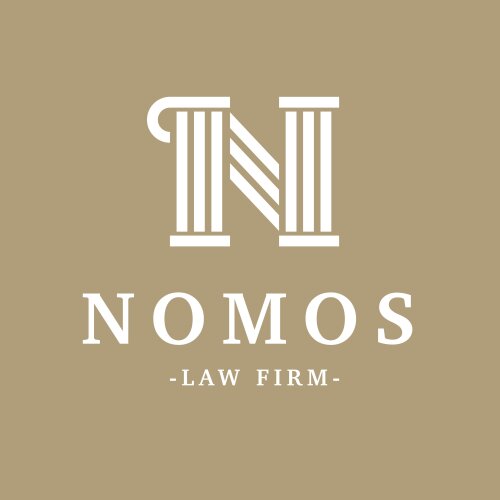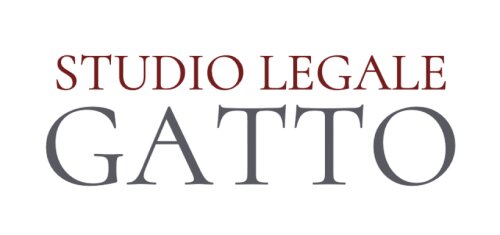Best Wrongful Termination Lawyers in Italy
Share your needs with us, get contacted by law firms.
Free. Takes 2 min.
Or refine your search by selecting a city:
List of the best lawyers in Italy
About Wrongful Termination Law in Italy
Wrongful termination, known as "licenziamento illegittimo" in Italy, refers to the unlawful firing of an employee. Italian labor law provides strong protection for workers, especially regarding unjust dismissal. The laws are predominantly based on the principle that employer-employee relationships should be governed by fairness and mutual respect. The cornerstone of employment protection is Article 18 of the Workers’ Statute (Law No. 300 of 1970), which outlines lawful grounds for termination and assigns remedies in cases of breach. Whether the dismissal is due to disciplinary reasons or economic requirements, it must be substantiated with valid justification.
Why You May Need a Lawyer
Hiring a lawyer can be crucial in various instances of wrongful termination, such as:
- You have been terminated without a valid or consistent reason.
- The dismissal was conducted in violation of agreed-upon contractual terms.
- You suspect the termination was due to discriminatory practices.
- There are discrepancies or insufficiencies in the termination notice.
- You're unsure about compensation entitlements such as severance pay.
In such situations, a lawyer can help understand your rights, assess the legality of the termination, and guide you through claiming damages or requesting reinstatement.
Local Laws Overview
The Italian legal framework for wrongful termination is robust, with several key aspects:
- Just Cause and Justified Grounds: Employers must demonstrate a legitimate reason for dismissal. Distinctions are made between disciplinary (connected to employee conduct) and objective dismissals (linked to organizational needs).
- Protections under the Workers’ Statute: Article 18 provides that employees unjustly dismissed in companies with more than 15 employees may be entitled to reinstatement or compensation, capped depending on the tenure.
- Collective Dismissals: Law 223/91 governs large-scale redundancies and lays out procedures for a conciliatory process.
- Notice Periods: Employees are generally entitled to a notice period, except in cases of dismissal for cause, where immediate termination is possible due to severe misconduct.
Frequently Asked Questions
1. What constitutes wrongful termination in Italy?
Wrongful termination occurs when an employer dismisses an employee without justified grounds, breaching labor laws or contractual agreements.
2. What is considered a valid reason for termination?
Valid reasons include misconduct, consistent underperformance, or economic/organizational changes affecting the company.
3. Can I be terminated during maternity leave?
Italian law prohibits dismissal from the commencement of pregnancy until the child's first year, except under exceptional circumstances (e.g., company closure).
4. What steps should I take if I believe my dismissal was wrongful?
Consult a labor lawyer to assess your case, collect evidence, and consider filing a claim against the employer.
5. What remedies are available for wrongful termination?
Available remedies include job reinstatement or financial compensation depending on the company's size and employment conditions.
6. How long do I have to challenge a wrongful termination?
You generally have 60 days to notify the employer of your intention to contest the dismissal and a subsequent 180 days to file a formal claim in court.
7. Can temporary workers claim wrongful termination?
Temporary workers have specific protections and may contest terminations that violate contract terms or discriminate against them.
8. Are there any exceptions for small companies?
Workers in companies with fewer than 15 employees generally have more limited reinstatement rights and usually receive varying compensation allowances.
9. How are damages for wrongful termination calculated?
Damages are based on factors including employee tenure, company size, and salary, typically ranging from 2.5 to 36 months' pay.
10. What is the role of labor unions?
Labor unions play a significant role in protecting workers' rights and can provide support and advice to those facing termination issues.
Additional Resources
- INL (Ispettorato Nazionale del Lavoro): Offers guidance on labor violations and assistance with dispute processes.
- Trade Unions: Organizations like CGIL, CISL, and UIL provide legal aid and advocacy for employee rights.
- Local Labor Chambers: Offer services related to the resolution of employment issues and disputes.
Next Steps
If you find yourself facing potential wrongful termination, consider taking these steps:
1. Document all relevant information regarding your employment and dismissal.
2. Seek legal advice from an attorney specializing in labor law to evaluate your case.
3. Utilize resources from trade unions or labor chambers to support your claim.
4. Follow procedural timelines to file any complaint or claim to ensure your rights are upheld.
Taking timely and informed action is crucial to navigating wrongful termination disputes effectively.
Lawzana helps you find the best lawyers and law firms in Italy through a curated and pre-screened list of qualified legal professionals. Our platform offers rankings and detailed profiles of attorneys and law firms, allowing you to compare based on practice areas, including Wrongful Termination, experience, and client feedback.
Each profile includes a description of the firm's areas of practice, client reviews, team members and partners, year of establishment, spoken languages, office locations, contact information, social media presence, and any published articles or resources. Most firms on our platform speak English and are experienced in both local and international legal matters.
Get a quote from top-rated law firms in Italy — quickly, securely, and without unnecessary hassle.
Disclaimer:
The information provided on this page is for general informational purposes only and does not constitute legal advice. While we strive to ensure the accuracy and relevance of the content, legal information may change over time, and interpretations of the law can vary. You should always consult with a qualified legal professional for advice specific to your situation.
We disclaim all liability for actions taken or not taken based on the content of this page. If you believe any information is incorrect or outdated, please contact us, and we will review and update it where appropriate.
Browse wrongful termination law firms by city in Italy
Refine your search by selecting a city.














